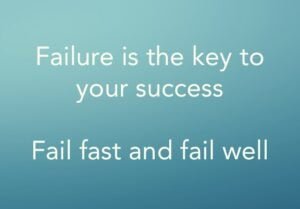Embracing Growth and Imperfection: Your Pathway to Transformation
It’s human nature to strive for perfection. The societal pressures, self-imposed expectations, and our innate desire for acceptance can lead us to chase an unrealistic ideal. This pursuit often leaves us feeling inadequate and discontented. However, a shift in perspective, as encapsulated by the quote “Growth is not in the pursuit of perfection, but in embracing our imperfections and understanding they are part of our unique beauty,” can be life-transforming.
Understanding the Beauty of Imperfections
In essence, the quote encourages us to shift our focus from perfection to growth and from flaws to uniqueness. This perspective is grounded in the principles of positive psychology, Neuro-Linguistic Programming (NLP), and life coaching.
Neuro-Linguistic Programming (NLP) and Embracing Imperfections
NLP, a psychological approach that involves analysing strategies used by successful individuals and applying them to reach a personal goal, offers tools for individuals to alter their perception of self and the world. NLP helps us understand that our map of reality is not reality itself but merely our interpretation of it. Thus, if we perceive our imperfections as hurdles, they become just that. On the contrary, when we view them as unique aspects that make us who we are, they transform into tools for personal growth and self-acceptance.
The Role of Life Coaching in Growth
Life coaching is another powerful approach to foster growth. Coaches guide you to move from a problem-oriented mindset to a solution-focused one. Instead of concentrating on your flaws and failures, the emphasis shifts to your strengths and potential. By setting clear, achievable goals, and breaking them down into manageable steps, you are encouraged to move forward, embrace change, and grow.
Psychological Patterns and Rigidity in Thinking
However, it’s crucial to acknowledge that, sometimes, people can become rigidly stuck in certain patterns of thinking, particularly those relating to self-perception. Cognitive psychologists term these as ‘cognitive distortions’ – biased perspectives we take on ourselves and the world around us. A common distortion is ‘all-or-nothing thinking,’ where we view things in absolute, black-and-white categories. This type of thinking can make us hold onto an unattainable image of perfection.
Shifting Cognitive Distortions and Fostering Change
Cognitive Behavioural Therapy (CBT) offers techniques to shift these distortions and foster healthier thinking patterns. By challenging these distortions, understanding the impact of our thoughts on our feelings and actions, we can learn to embrace our imperfections and see them as an integral part of our unique self.
Breaking My Addictions: Embrace Your Unique Beauty
In the spirit of embracing growth and transformation, let’s pledge to celebrate our imperfections today. Recognise them as unique features that contribute to your individual beauty. Practice self-compassion, challenge your cognitive distortions and replace negative self-talk with positive affirmations. Remember, every day is an opportunity for growth and change. Seize it. After all, growth is about progress, not perfection.
The Journey Towards Self-Acceptance
Self-acceptance is a crucial factor in personal growth. It involves acknowledging and accepting ourselves as we are, without judgment. But, the journey to self-acceptance isn’t always easy. We often struggle with internal resistance and negative self-talk. However, each small step towards embracing our imperfections makes us stronger and resilient. It helps us cultivate a sense of self-worth that isn’t dependent on external validation.
The Power of Growth Mindset
The concept of a ‘growth mindset’, coined by psychologist Carol Dweck, comes into play here. With a growth mindset, we can understand our ability to learn and change is not static. It encourages us to see failure not as evidence of unintelligence, but as a heartening springboard for growth and stretching our existing abilities. By adopting a growth mindset, we can start to appreciate that our ‘imperfections’ are simply areas for potential growth and development.
Neuroplasticity: The Brain’s Ability to Change and Adapt
Further supporting this growth-oriented approach is the concept of neuroplasticity – our brain’s incredible ability to reorganise itself by forming new neural connections. This means our brains are not hardwired as previously believed, but can adapt and change throughout our lives. This gives us immense power to reshape our thought patterns and responses, embracing a more positive, growth-oriented outlook.
The Role of Positive Affirmations
Positive affirmations can also be a powerful tool in this transformational journey. These are positive statements that can help us challenge and overcome self-sabotaging thoughts. When we repeat them often and believe in them, we start to make positive changes.
Breaking My Addictions: Implementing the Growth Mindset
To ignite this shift, consider the thoughts and beliefs that might be holding you back. Challenge them with the understanding that growth and learning are continuous processes. Implement positive affirmations into your daily routine to reinforce this mindset shift. Remember, your imperfections are not your weaknesses; they’re opportunities for growth. In the journey of personal evolution, each step, no matter how small, brings you closer to becoming the best version of yourself.













